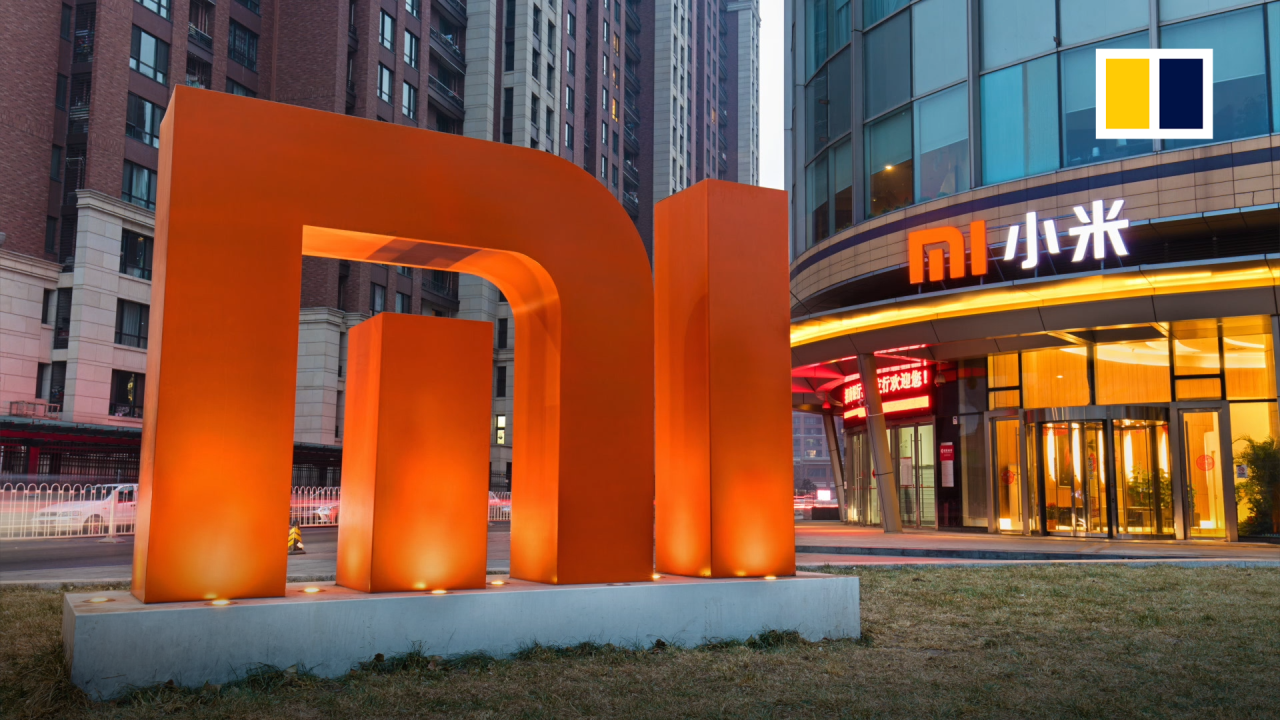
With Xiaomi outgunning Apple, Samsung in valuation, rare ‘sell’ rating, earnings in focus after stock’s 168 per cent rally
- Shares of Chinese smartphone maker have almost tripled from March on tech rebound, index inclusion and Huawei’s sanction misery
- Morningstar argues Xiaomi’s fundamentals haven’t changed much, Citigroup says market underestimates risks from Huawei’s Honor deal
The shares of the Chinese smartphone maker almost tripled to HK$25.55 on Friday from a low of HK$9.50 on March 23, briefly setting a record of HK$26.95 on September 2. An announcement on August 14 to include Xiaomi as a Hang Seng Index constituent has since rewarded its faithful with a HK$246.8 billion (US$31.8 billion) increment in market value.
Investors could get burned chasing the rally, according to Dan Baker, the analyst who goes against his 48 industry peers by recommending a sell on the stock, according to data compiled by Bloomberg.
Baker, a senior equity analyst at Morningstar in Hong Kong, has seen it before. He correctly predicted that Xiaomi’s shares would almost halve when it first listed in July 2018 at HK$17 apiece. On November 4, he pegged its fair value at HK$12.50, some 51 per cent below the current market price.
“Most of what’s driven up the value for the company is just a far more bullish sentiment in the stock market that’s driven all values in terms of Chinese tech stocks,” he said in a phone interview on Friday. “There just has not been that much change in the company in the last year.”
His estimate for Xiaomi’s earnings is in line with the market, which calls for an increase to HK$16.1 billion in 2021 and HK$20.7 billion in 2022, from HK$11.8 billion this year, according to Bloomberg data. There are 40 buys, eight holds and two sells on the stock. [Citigroup downgraded it to sell in October].

02:06
What's behind Xiaomi's meteoric rise?
Investors have been willing to pay a premium for the Beijing-based smartphone maker, whose line-up of products are often criticised for allegedly copying iPhone and iPad. It commands a valuation far richer than Apple and Samsung.
A near three-fold surge in its valuation multiples, measured by the price-to-earnings ratio, to 44 times currently from 16 times a year ago, is not justified, Baker said.
The market “has been underestimating the probability of Huawei’s continuing existence,” Citigroup analyst Andre Lin said in a report on Monday. “Market expectations on Xiaomi would need to be revised down, leading to downside risk for Xiaomi’s earnings and valuation.”

A negative analyst rating is usually rare because sell-side analysts tend to avoid a negative assessment for fear of souring their relationship with the companies they cover, and losing access to top management for guidance on business outlook.
As an independent research firm, Morningstar is more open to analysts taking a contrarian view based on fundamental analysis, Baker said. The firm’s fair-value price system aims to predict a stock performance over three years, versus 12 months for most brokerages.
Baker initiated coverage of Xiaomi in July 2018 with a fair value of HK$10. Investors who followed his call would have avoided a sell-off that erased HK$280 billion in market value between June 2018 and November 2019. They would also have missed a rally that added HK$390 billion of wealth since the March low, as Baker stuck to his sell call.
The opportunity for another debate could not have come sooner as chief executive and co-founder Lei Jun unveils its third-quarter results after the close of trading on Tuesday.
How fast the smartphone maker grows its “internet services” division may help Xiaomi win over sceptics or satisfy some of its critics, not least the regulators who have questioned its business model and valuation.
“Smartphone is still the biggest chunk of their revenues and in terms of profit driver,” Baker said of Xiaomi. “You know, it’s basically a smartphone company. Historically, [such companies] haven’t traded on 40 times earnings.”

